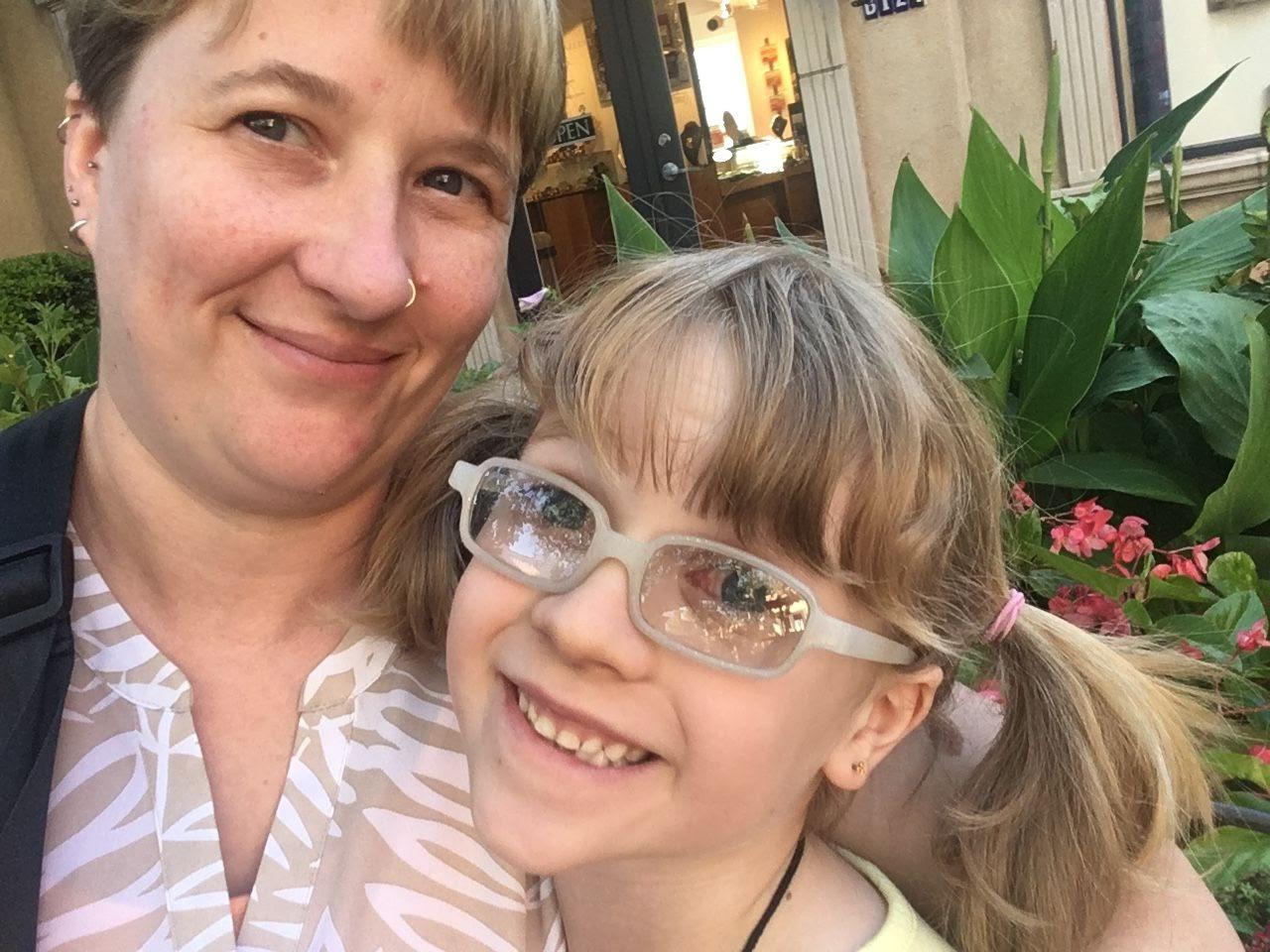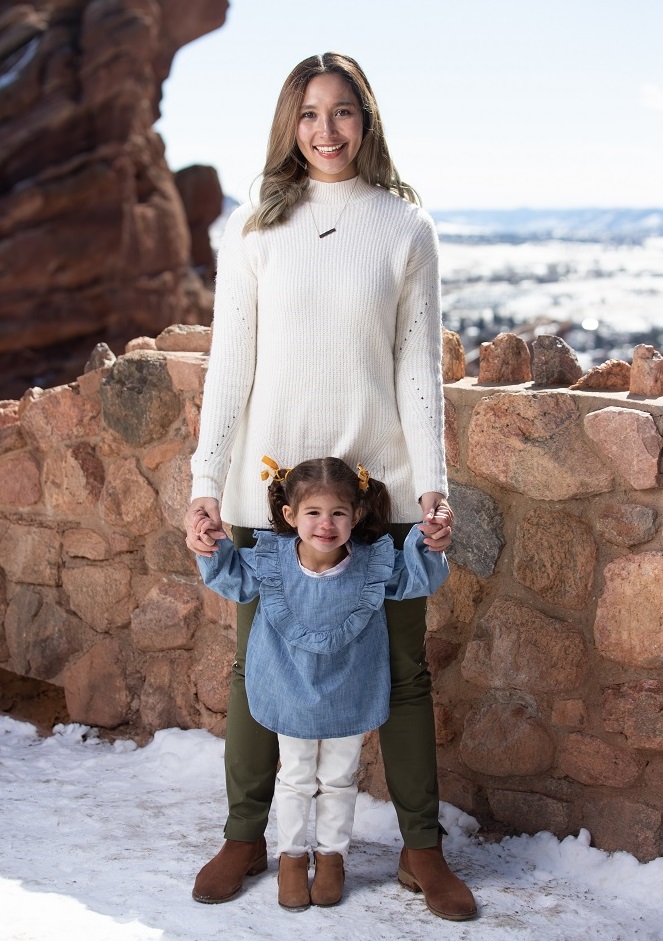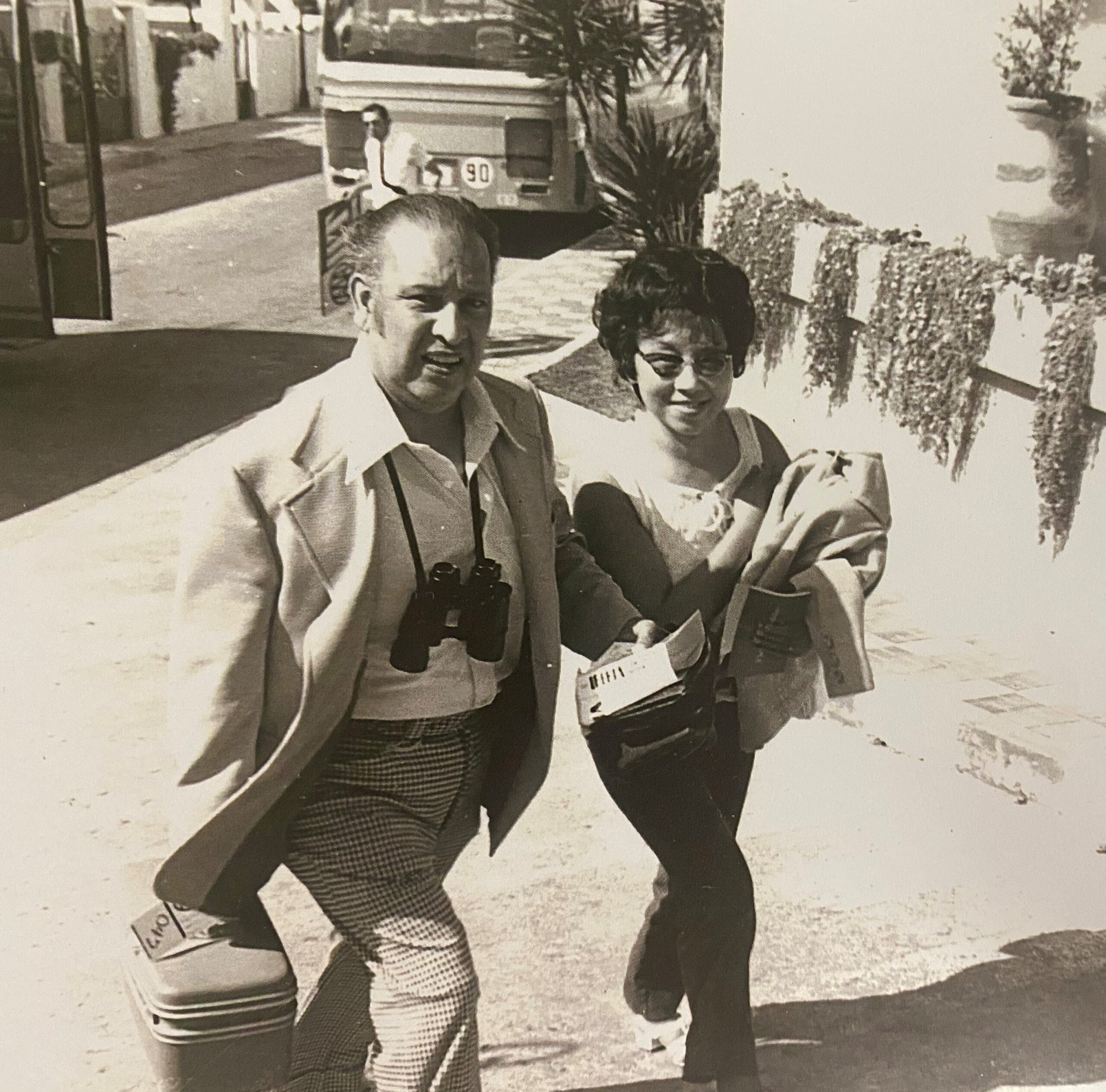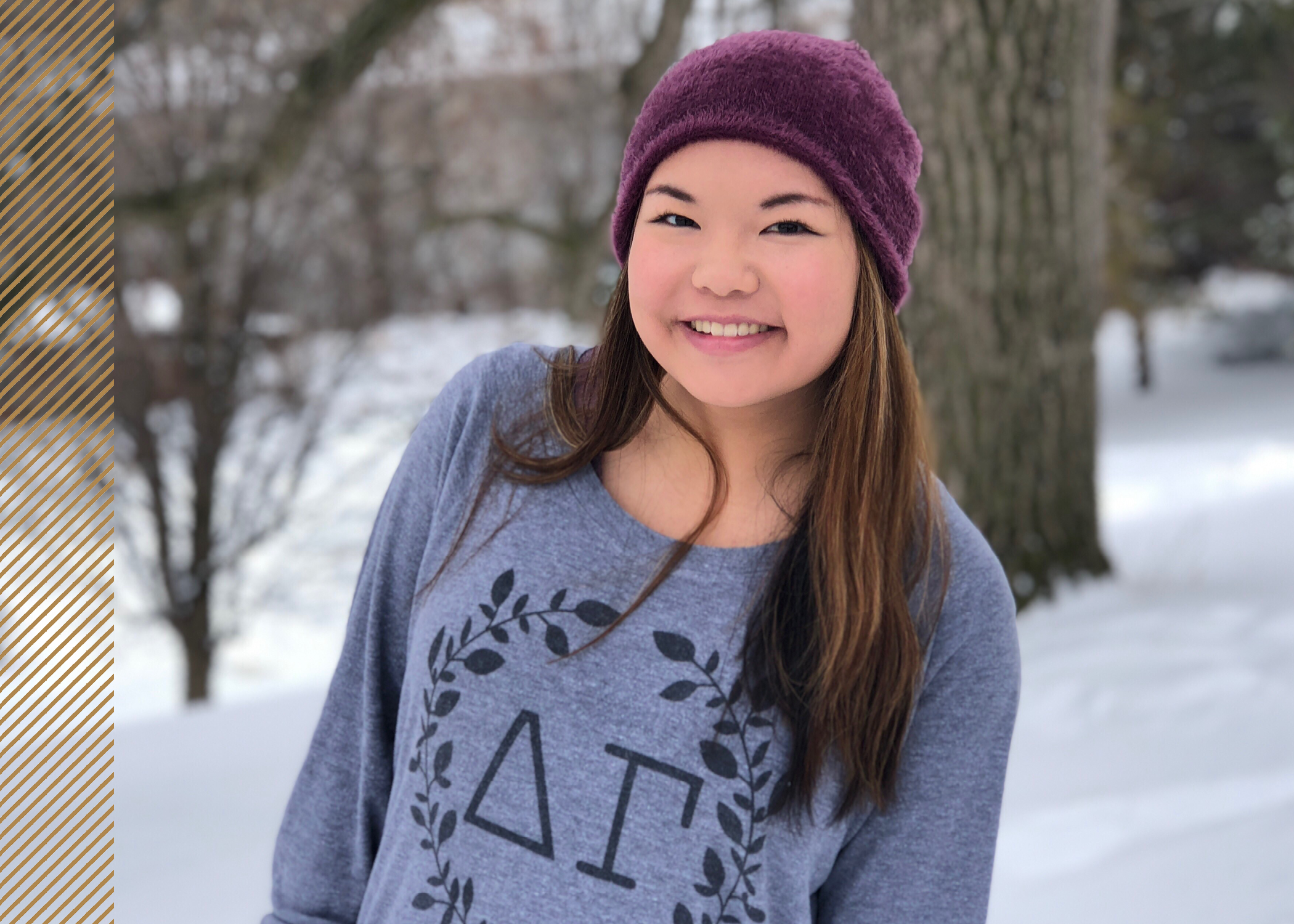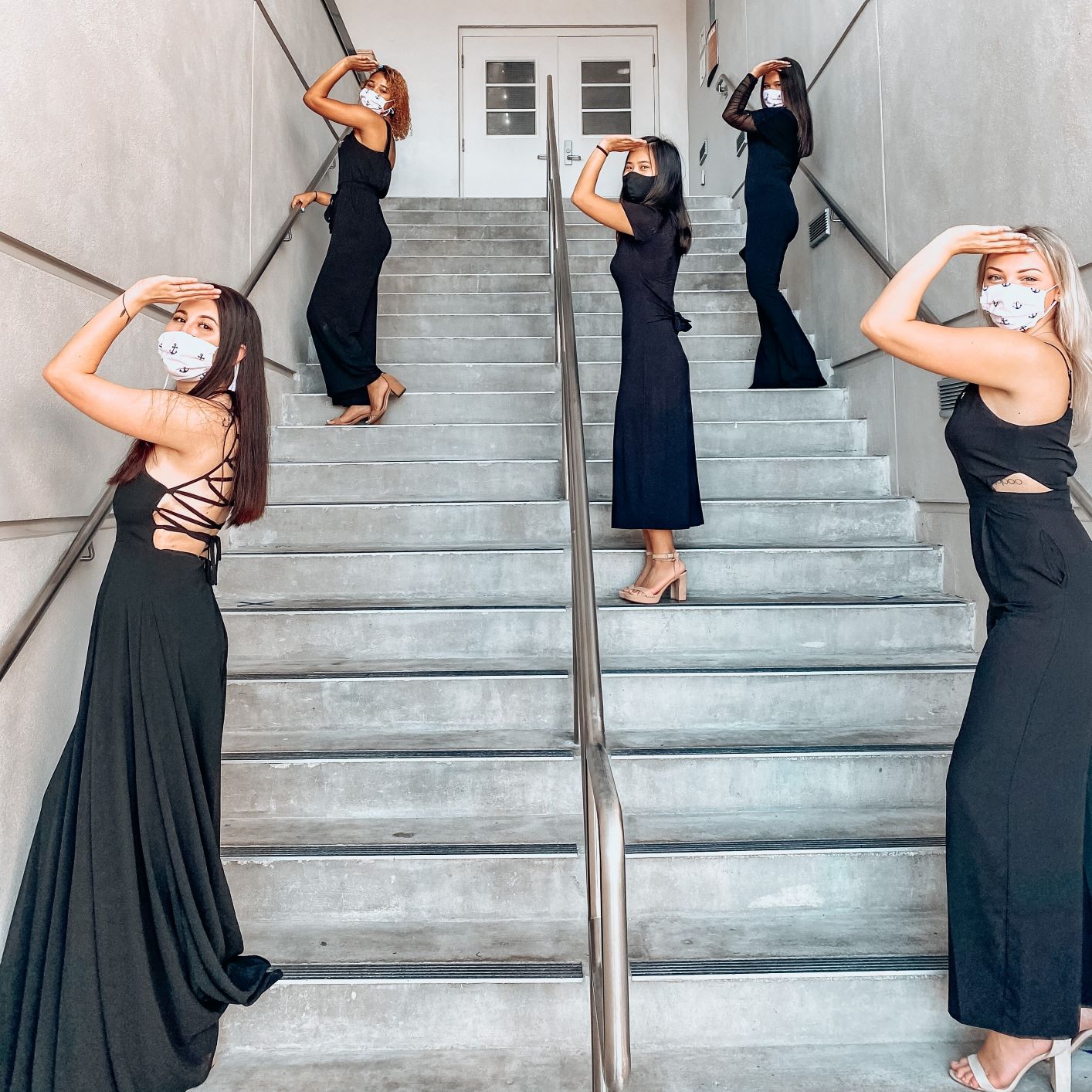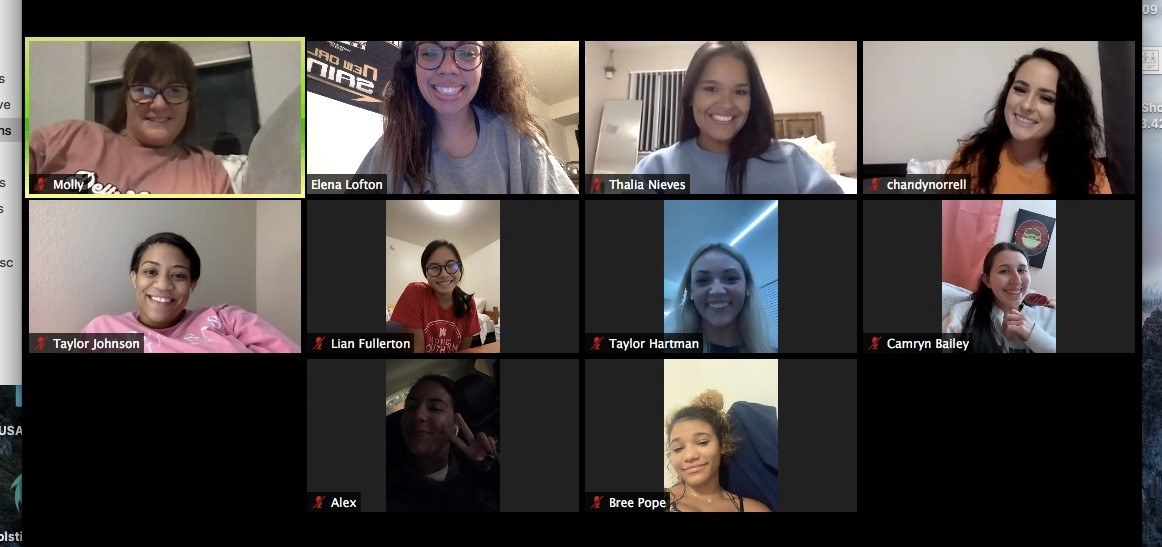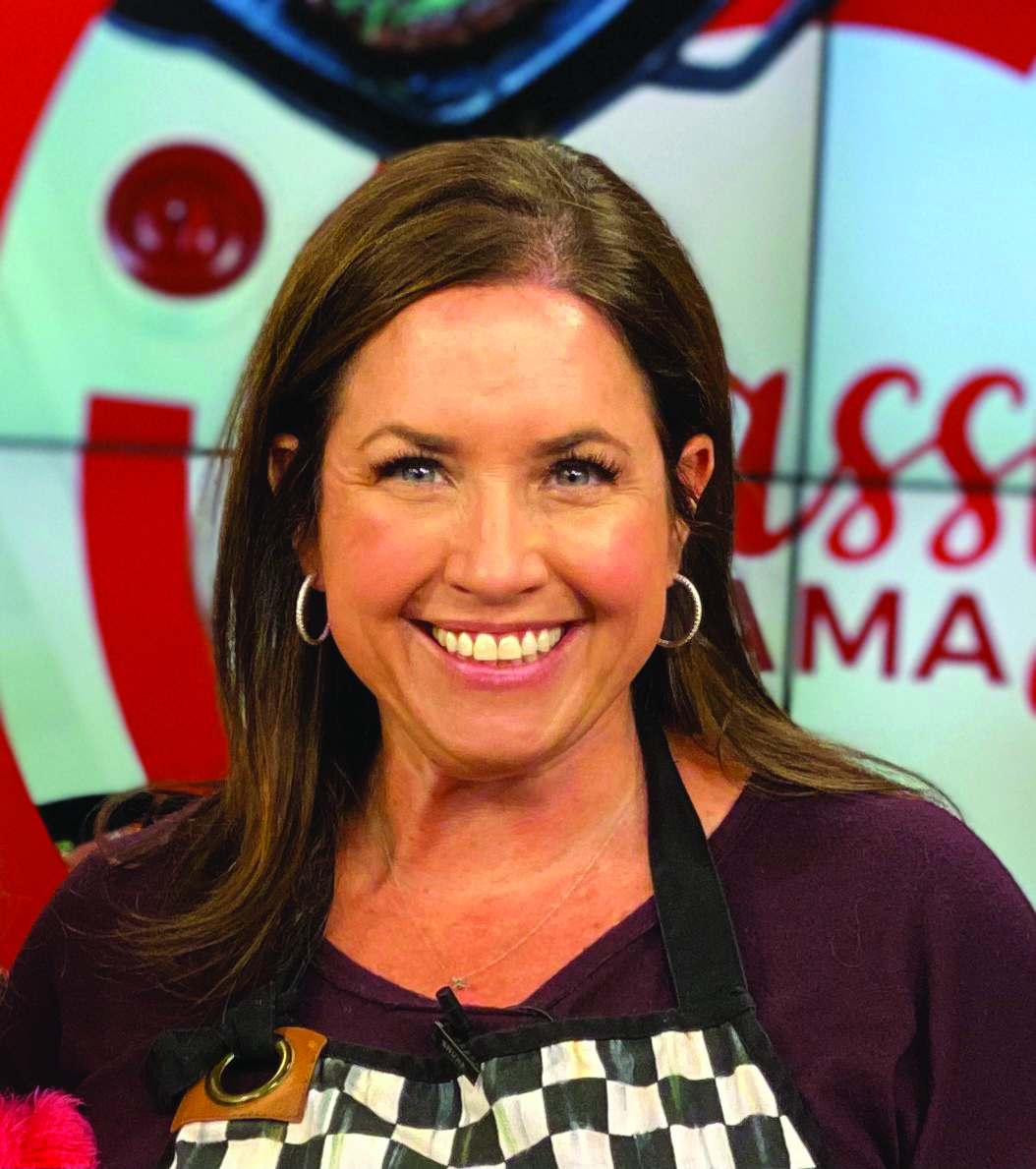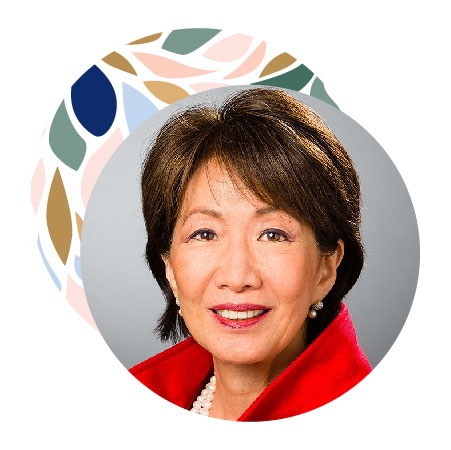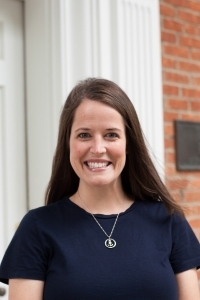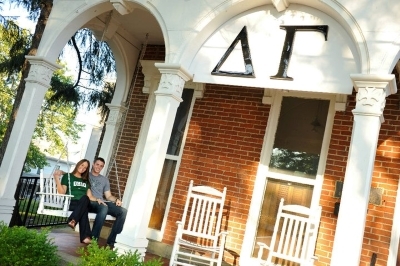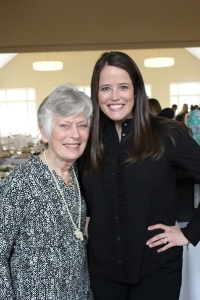Meet the Fraternity Nominating Committee
The nomination process for the 2022-2024 Fraternity Council began on July 1. We have received excellent candidate nominations thus far and look forward to many more between now and December 10, when nominations close. The Fraternity Nominating Committee wants to hear from YOU! Reach out, ask questions and introduce sisters you think would impact meaningful change and ensure the future of our Do Good Sisterhood.
As Committee Chair, Staci Skoog, Beta Zeta-Denison, says, “All Delta Gamma’s should feel invested in the nominating process because it is a member-driven process. The Fraternity Nominating Committee relies on our membership to share the names of Delta Gamma alumnae who they feel have the qualities to lead the Fraternity in the next biennium, and potentially shape the future of Delta Gamma. In addition, we count on members to introduce us to candidates who may hold leadership positions in their professional or volunteer life that make them exceptional candidates for leadership in the Fraternity.”
Meet members of the Nominating Committee below and contact your region’s representative to start a conversation:
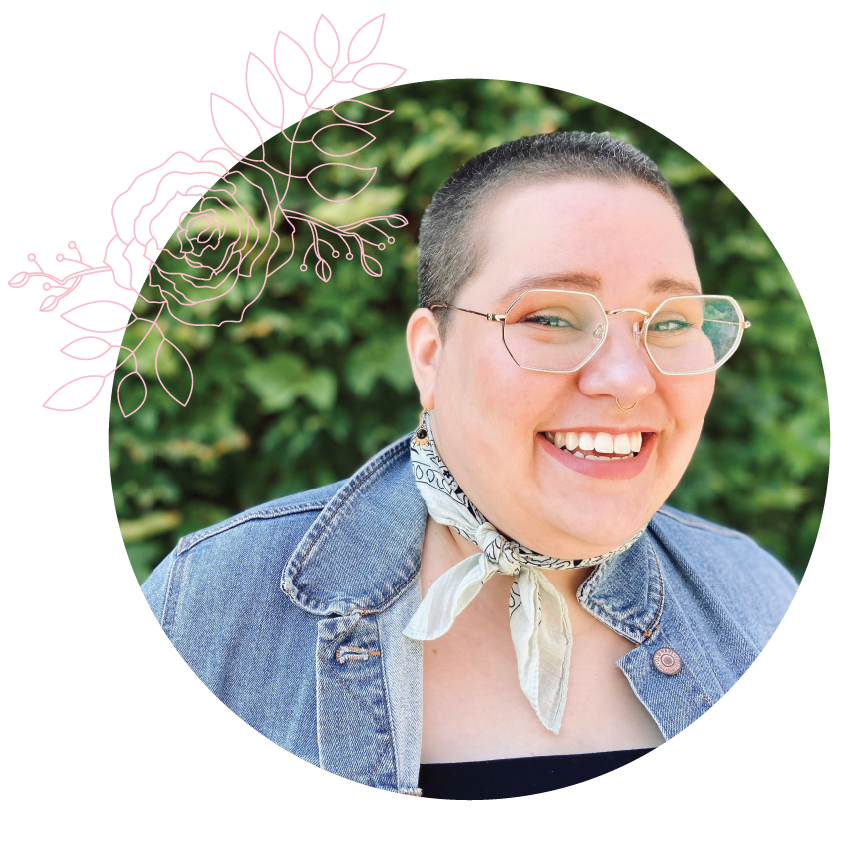
Region 1 Representative | Dee Hawks, Zeta Sigma-Northern Kentucky
What is your profession? Assistant Director, Sorority & Fraternity Life at Cornell University
What is your favorite Delta Gamma memory? Hands down, The Lewis Institute. Lewis has brought some incredible collegiate sisters into my life, as well as many awesome alumnae sisters and Friends of the Anchor volunteers. I have found some of my closest friends and allies through facilitating with Delta Gamma!
What was the best compliment you ever received? Speaking of Lewis, I had a collegiate sister approach me at the end of Lewis one year to thank me for talking about my fat body positively and being a positive representative for fat sisters. That thank you has stuck with me for years now- representation matters!
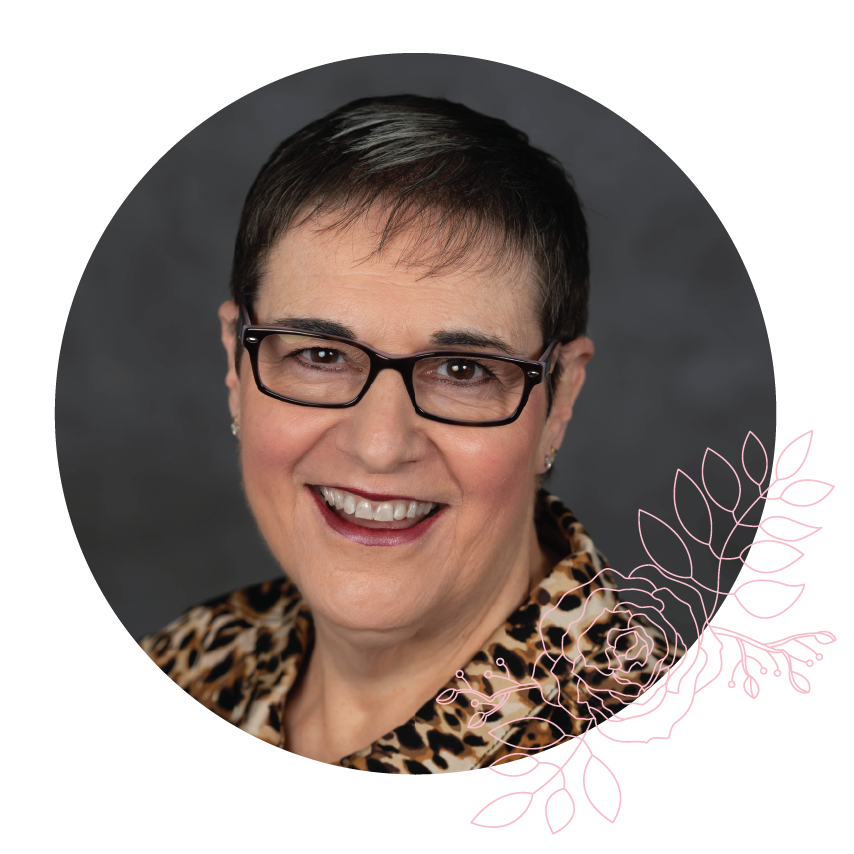
Region 2 Representative | Mary Beth Harrison-Cunningham, Epsilon Nu-James Madison
What is your profession? K-12 Public School Educator – Manager of the Fairfax County Public Schools Parent Resource Center
What is your favorite Delta Gamma memory? My favorite Delta Gamma memory is the day I surprised my daughter for her initiation into DG. She was initiated into the same chapter that I help found when I was a collegian. I got to pin her with my badge; it was an amazing moment for us both!
What is your favorite anchor item you own? My favorite anchor item is the tattoo on my right arm that is an anchor with the Greek letters of Delta Gamma. It is a daily reminder of my love for Delta Gamma and the amazing sisterhood that I am a part of.
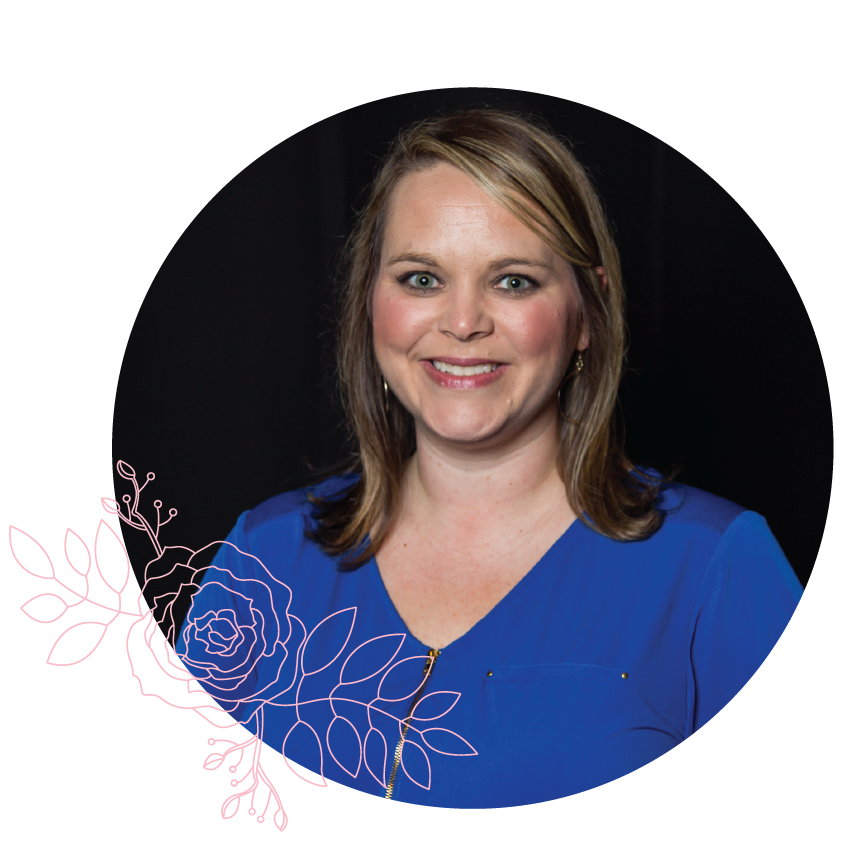
Region 3 Representative | Kimberly (Kim) Ward, Delta Pi-Southern Mississippi
What is your profession? Associate Professor and Audiologist
What is one item on your “bucket list” you’ve yet to complete? One item on my bucket list I have yet to complete is skydiving. I am terrified of heights, but I believe it is important to challenge myself and to do things that are outside of my comfort zone.
What was the best compliment you ever received? One of the best compliments I have ever received is being told I was the “hostess with the mostess”. I absolutely love celebrating others and enjoy every minute of the planning, down to every last monogrammed detail!
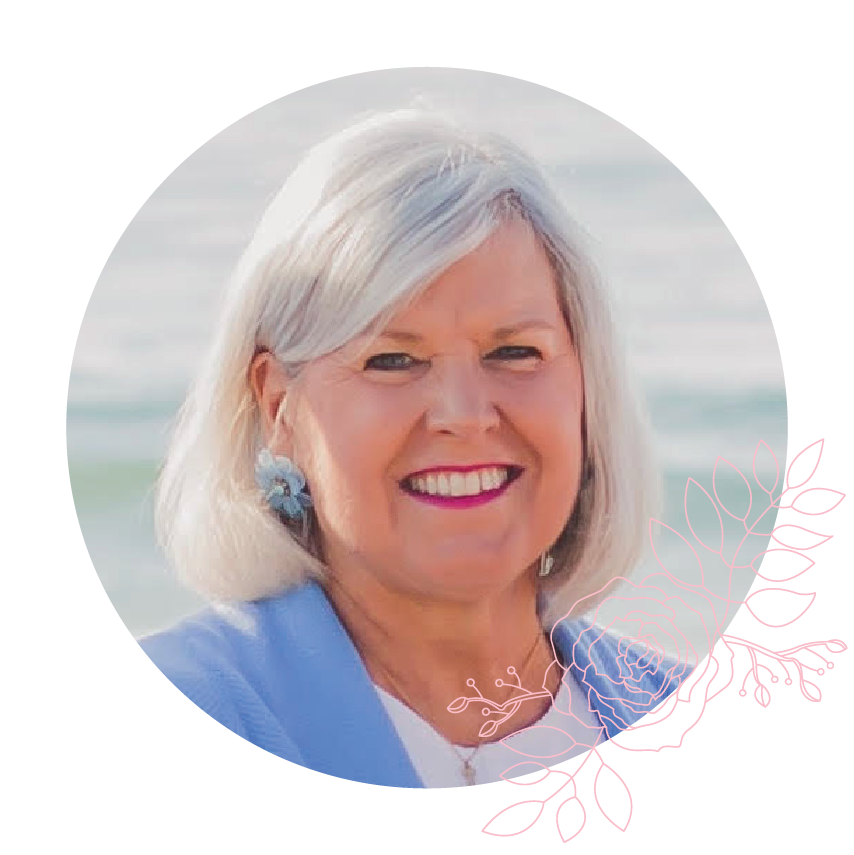
Region 4 Representative & Committee Chair | Stacia (Staci) Rudge Skoog, Beta Zeta-Denison
What is your profession? Fraternal Industry Advisor, Billhighway | greekbill
What is your favorite anchor item you own? Without a doubt, my favorite anchor item is my Delta Gamma badge. It represents my membership in Delta Gamma, as well as my place in the broader Panhellenic community. I treasure my DG sisters and my friendships across badges.
What was the best compliment you ever received? The best compliment I ever received was from an alumna member who had been a collegian at a chapter that I advised years before. She told me that I had inspired her to become a Delta Gamma volunteer. I carry that with me to this day, especially since she has been a fantastic volunteer over the years.
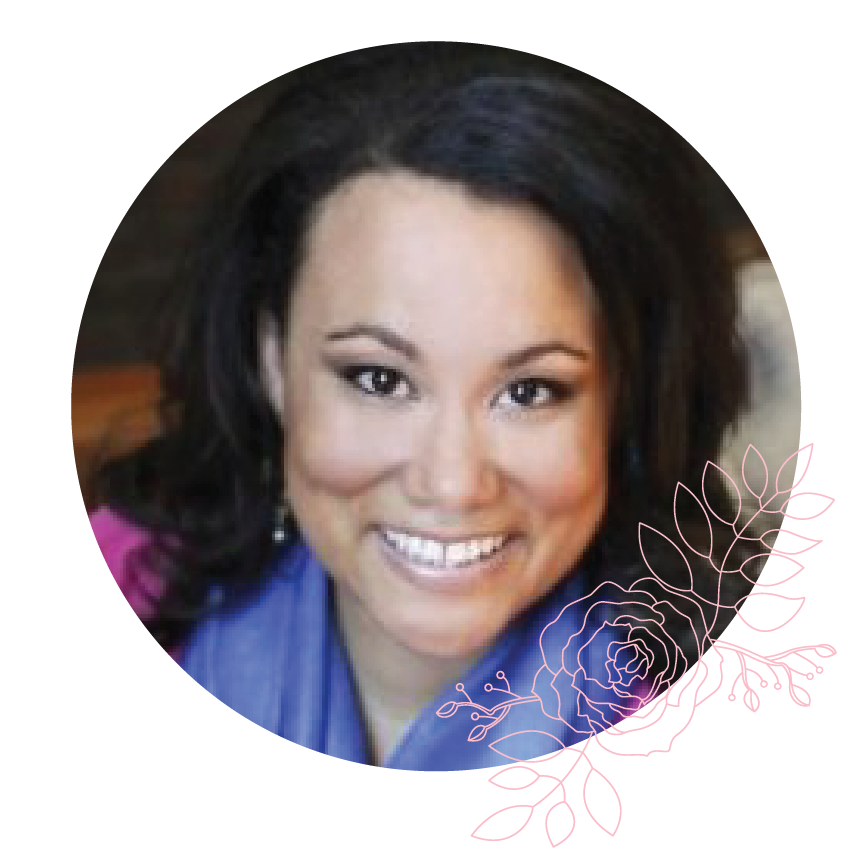
Region 5 Representative | Corin (Cori) Gilbert Wallace, Delta Omega-William Woods
What is your profession? Engagement Director - Della Lamb Community Services & Tour Manager - Miss America Organization
What is your favorite Delta Gamma memory? Receiving my Council badge from Laurie Kight, a woman I had admired and respected for years, at our Convention in Indianapolis.
If you could turn any activity into an Olympic sport, what would it be? Media appearances for a client. Working with Miss America has taught me how to prep a client, provide talking points and a narrative, and get her in and out of a studio after doing a 3-minute segment on a national morning show in 45 minutes flat!
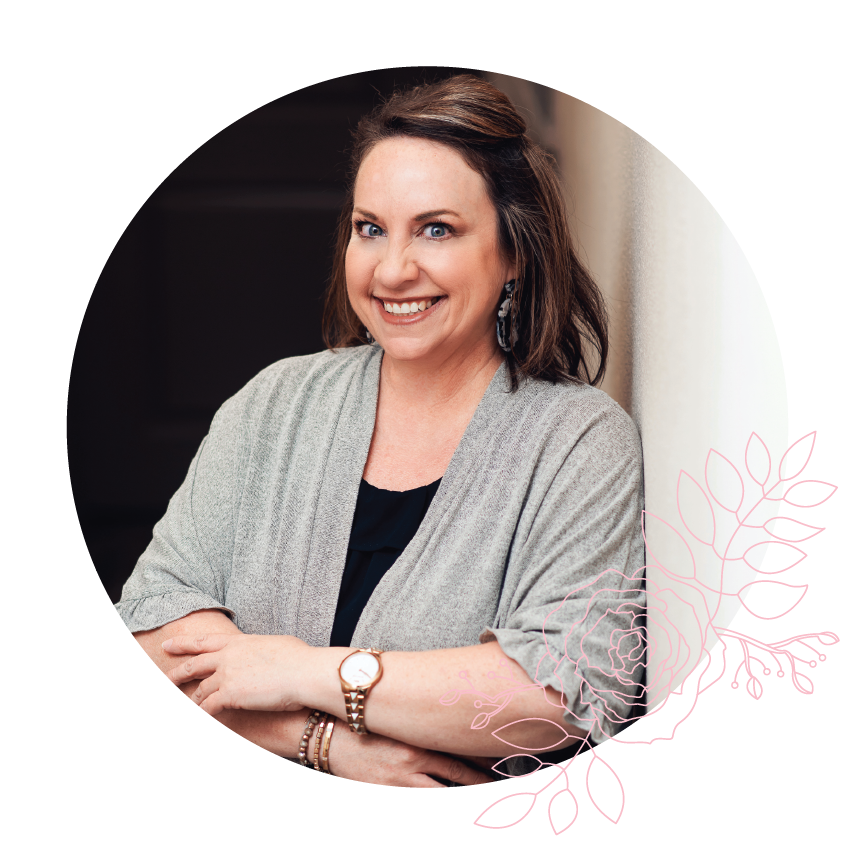
Region 6 Representative | Aleesa Miller Ross, Gamma Xi-Texas Tech
What is your profession? Marketing director for J Ferg, a West Texas-based roofing, plumbing, equipment rental, commercial construction and disinfecting company.
What is your favorite anchor item you own? I have a beautiful ring with an anchor on it that I was planning to order for myself. But, after Kate Stanton saw how much I was gushing over it, she rallied the collegiate directors, and they, along with her, purchased it for me as a gift at Convention 2018 when I was leaving Council.
If you could only watch one movie for the rest of your life, what would it be? The Goonies
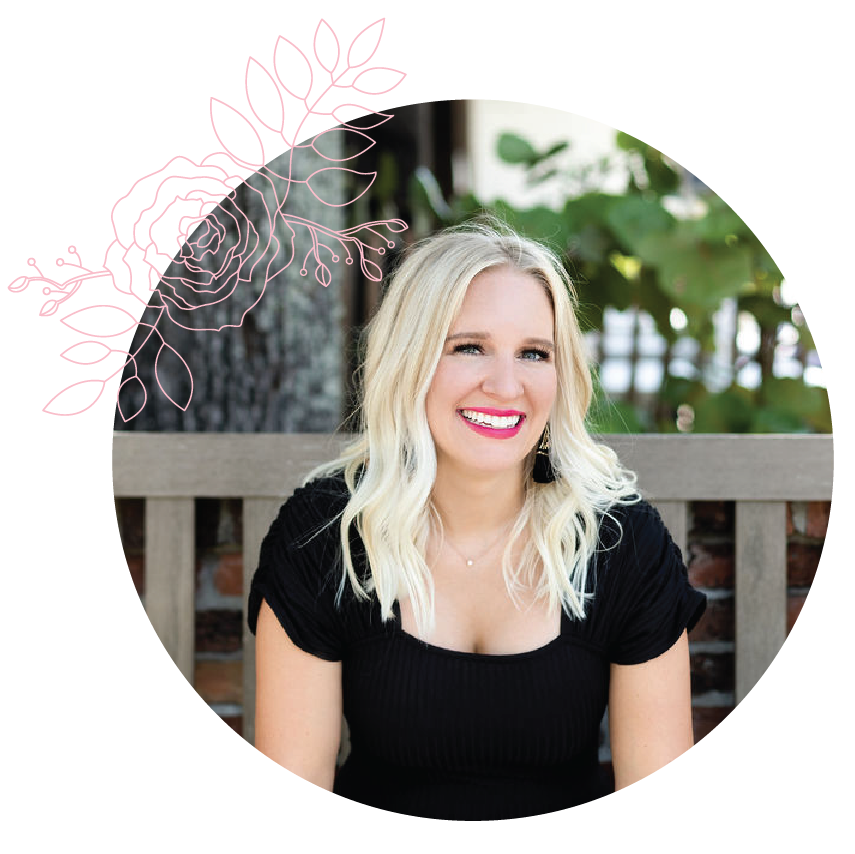
Region 7 Representative | Samantha Siffring, Epsilon Nu-James Madison
What is your profession? CEO
What are some of your hobbies/what do you like to do for fun? I love reading, traveling with my family (we take our kids on a 2-4 week trip every summer!), shopping and going out to eat – it could be a BBQ joint in a former gas station in rural Alabama or secret 21 course tasting menu in Las Vegas – if it’s good food, I LOVE it (and yes, both of those are real places I’ve gone!).
What is your favorite Delta Gamma memory? Being the MC for Founders Day while alumnae chapter president – it was when I first realized that I actually love public speaking (I used to think I hated it!).
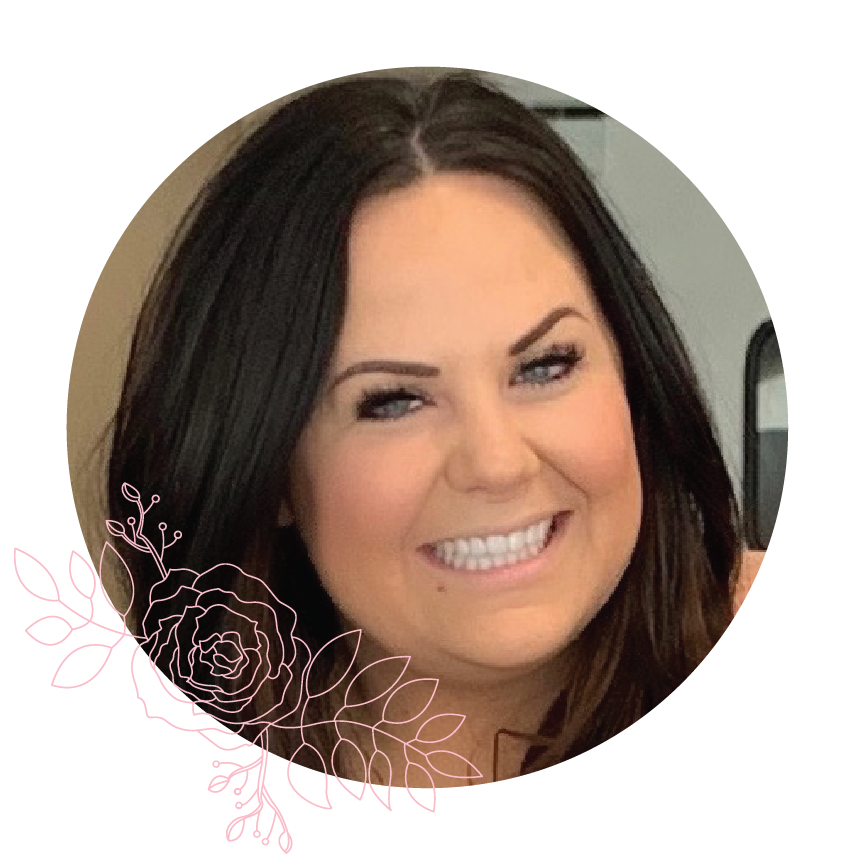
Region 8 Representative| Kristina Magovac, Delta Eta-Cal State, Sacramento
What is your profession? Sales Executive
What is the luckiest thing that has ever happened to you? I was surprised by a previous employer with a private night at Universal Studios Orlando. The park was closed for the entire evening for less than 200 people with all food and drink pre-paid!!
What is your favorite Delta Gamma memory? It would definitely be Convention 2018, celebrating my chapter of initiation winning two Convention Awards, major tears!

Interested in nominating an alumna member for Fraternity Council? Fill out this nomination form!


